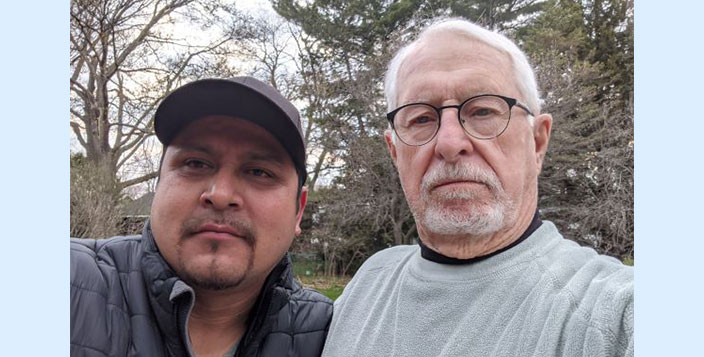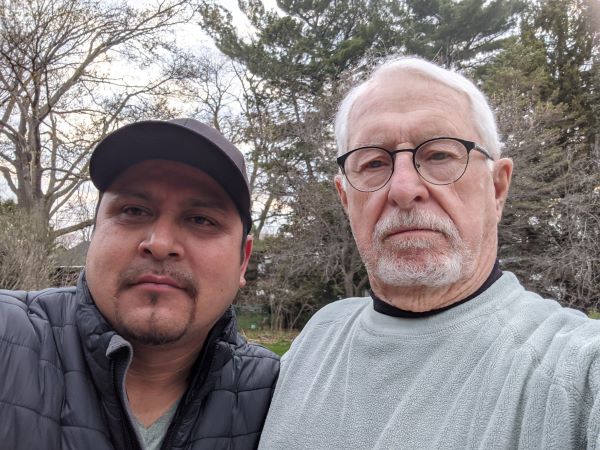Tutor view: after a year of texting, face-to-face isn’t far away!

George Griffiths has been a volunteer with the Literacy Council since 2004. He and his student, Isaias, have been working together for nearly 6 years. Isaias’s first goal was to write the alphabet, now he is learning to read and write in Spanish and English! Over the past year, when they weren’t able to meet in person, they stayed connected by texting. Recently, Griffiths helped his student get his first COVID-19 vaccine and they hope to return to face-to-face tutoring when Isaias is fully vaccinated!
What is something you enjoyed reading/listening/watching during the past year?
I enjoy listening to music, keeping up with politics and reading about archaeology. I listen to “Real Jazz” and “Symphony Hall” on Sirius XM at home and in my car. In politics, I discovered Heather Cox Richardson, a Boston College historian, who analyzes the current situation through her vast knowledge of U.S. history. She has a blog and daily emails on the internet. My archaeological reading is mostly about Mesoamerica (Mexico and Central America).
What inspired you to become a volunteer with the Literacy Council?
I first volunteered with the Literacy Council through the Partners in Reading program which, unfortunately, has been discontinued. I was dismayed about the school dropout rate among Hispanic students. I had wanted to help in some way for some time, so I volunteered to read with students in the bilingual program at Sheridan School. Along the way, I decided I could also tutor Hispanic adults who wanted to learn English. My current student came to the Literacy Council unable to read. I volunteered to teach him and it has been very satisfying for me to see his improvement in literacy.
What’s your favorite teaching technique to use with a student?
I don’t have a teaching background. I am an engineer, a problem solver. I determine where the student is having problems, and concentrate on that area for part of each meeting until the student masters it, and then move on to the next problem area. As our tutoring is a one-on-one situation, this approach seems to work well.
What advice would you give to a new tutor?
Advice to new tutors: Don’t get discouraged. Most of our students have problems in their lives that we, as settled U.S. citizens, have never had to deal with. It can interfere with their ability to meet or to work on their homework. Be patient.
Do you want to become a volunteer tutor for the Literacy Council? Apply online today! Our next training will be virtual and take place on Zoom in June or July 2021.
Click here to apply to be a tutor!

